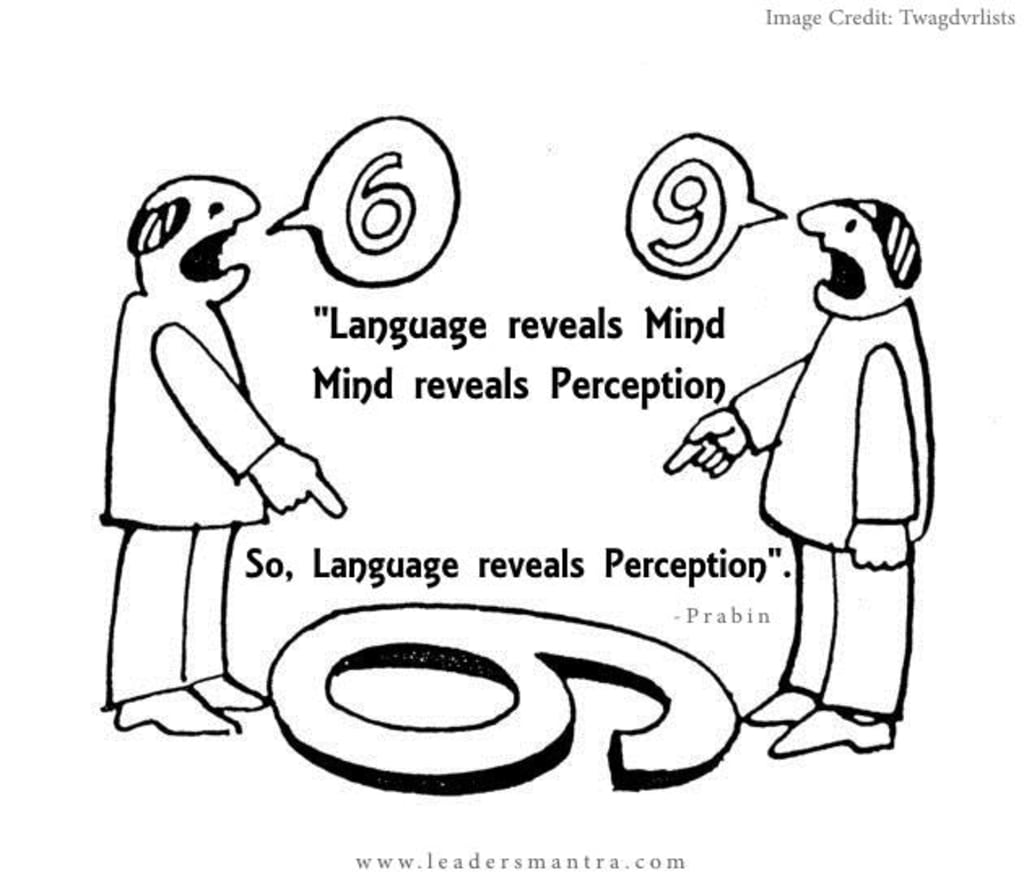How emotions impair your judgment and why you shouldn't let them
Not everything you feel is real

Perception isn't always reality by Monique Williams
Emotions are sometimes much like a mirage. Emotions can be illusive. And as much as our emotions can feel intensely real, and we can feel very passionate about things or certain events that take place in our lives, sometimes things are not what they seem. If you're having a hard time understanding what I mean, I'll lead this conversation with an example. Say for instance, you have a heated argument with your romantic partner after finding out they were flirting with someone else. Although, this kind of behavior can easily be misconstrued as something that deserves a breakup, or that you should just cut the situation off, that may be your emotions barking at you. Some people do see flirting as cheating, so it all depends on the person. But, sometimes wanting to walk away without getting the closure you need or without a conversation could just be your emotions driving this behavior. I'll be honest, if I were ever in this situation, which I have been before, I'd be pretty angry too.
The most mature response to something like this, or to any situation that makes you upset would be to take some space from the situation for a while. Space will allow you the time you need to sort out your anger and how you truly feel. It will also put things back into perspective that were previously muddled by anger. Anger can make you make some pretty impulsive decisions, which is why some of the wisest people have said once before, it's never good to make decisions while you're angry. You may end up making a decision you will permanently regret. Permanent decisions for a temporary problem usually spell disaster. Back to the example I was using to describe this, sometimes a good sit down with your partner or the other party involved may be helpful in making sound decisions. There could be a myriad of reasons why your partner did whatever they did. Usually the root cause of a partner emotionally cheating is they feel like they're not getting enough attention. Or sometimes the root of the issue could be a self worth problem. Sometimes your partner could have issues believing they deserve you, or that they're even worthy of love. Which is why sitting down and asking some pointed questions could help you get to the root of the problem and finding out whether the situation is worth absolving or not. Another reason why perception isn't always reality is because we all form opinions based on our own past experiences. We base how we see life based on our own idea of how we perceive it. There are tons of things that affect the way we perceive things; things like cultural differences, differences in religion, and even traumatic experiences can make us see things differently than others. We don't all experience life the same way so of course we don't see it the same way.
Another emotion that tends to cloud our judgment is fear. Fear is usually based on past trauma or past experiences, usually bad ones. Those experiences usually fuel the fear I speak of in this section of the article. For instance, there was an episode I saw on Dr. Phil once of a woman who was terrified to eat because she didn't like her food to touch. If her foods ever touched each other, she didn't eat. That fear was more than likely fueled by a phobia, but this is the type of fear that's illogical and crippling. It will keep you from doing things you really want to do but won't for fear of the experience being awful or traumatic. This is what I mean by emotions being so powerful at times, they have the ability to paralyze you. Learning to shut off your emotions and go with what your mind is telling you instead of listening to the loud voices of your emotions will be helpful in the long run. Not only will it help you avoid falling into the pitfall of self sabotage and bad decision making, taking the chance and going against your fears and emotions could turn out better than you thought. Depicted below is an example of how reality can sometimes be distorted and how not everything we see is what it appears to be

This painting was done by an artist named Rob Gonsalves and is a perfect example of how perception is not always reality, although society has been telling us this our whole lives. Society has shoved the concept that how we see things or how we perceive them is exactly how they are and that couldn't be further from the truth. There is usually a much deeper meaning to things or a root to a situation. You just have to be observant and intuitive enough to seek the real truth of it.
The Body Can Stand Almost Anything; It's Your Mind you Have to Convince

Emotions are described in the dictionary as a natural instinctive state of mind deriving from one's circumstances, mood, or relationships with others. Meaning that emotions are usually based on outside influences. This means they're based on our perception of a situation as opposed to what the situation really is. It usually takes time to psychologically process a situation to truly understand it on more than an emotional level. Say for instance, someone really close to you passes away, God forbid. It usually takes the mind time to process a situation like this and see the logic in it. Usually the emotions come first, which is a perfectly human response to losing someone you love. But it usually takes us time to logically process that it's much better to lose someone even if it hurts than for them to still be alive and in pain. Of course losing them is the lesser of two evils, but in complicated situations such as death, it is best to go with the option that releases the other party from pain than it is to keep them here in pain and suffering. Another example would be leaving a toxic relationship. The heart may want you to stay because you've grown so familiar with the person and the situation that you get used to the toxicity and the drama. Sometimes it's the history that mentally and physically binds us to a situation. But, it's better to leave a situation for the sake of healing than it is to stay with someone you're not happy with. It's so easy for the lines to become blurred between perception and reality, which is where emotional intelligence comes in. It takes experience to build emotional intelligence, even the painful ones, but it helps build clarity in situations that before those experiences would have otherwise been psychologically crippling.
Conclusion
In closing, it can be difficult to use logic in situations that involve heartbreak, sadness, anger, grief, and even disappointment and devastation. But the best approach to take in those situations is to feel whatever you feel, but avoid making decisions in those situations. Take the time you need to feel how you feel. Even cry if you need to. But taking a time out to fully understand a situation before having an emotional response to it will save you a world of trouble. It also shows a sense of growth and maturity if you can think a situation through before responding immediately. Sound decision making relies upon logic and proper analysis of a situation. It's the reason why judges and juries exist. The reason why there is a such thing as a president. Criminal situations or the ruling of an entire nation usually requires someone who can use their logic to rule out what the best decision may be based on the situation at hand. So whether you're angry at your sister for forgetting about your birthday or upset at your boyfriend for forgetting to take out the trash, take a time out, breathe, analyze the situation and determine whether it's really worth being angry over, and then decide :)
About the Creator
Monique Williams
Hello everyone,
I’m Monique talented writer who works in the medical field. I’m also a full time student at SNHU. My stories will be focused towards counseling and healing so thank you for reading and thanks in advanced for the support.






Comments
There are no comments for this story
Be the first to respond and start the conversation.